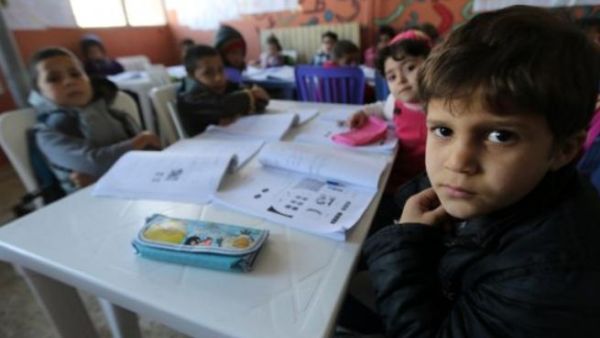Redifining the meaning of school for Syrian refugees
Mona Kinana’s eldest children had to stop going to school two years ago. Their hometown of Aleppo had become too dangerous, she says, because of unpredictable bombings and shelling.
Alaa, 14, had been at the top of his fifth-grade class and missed school terribly.
Amal, 15, was also distressed. For her, school allowed her to concentrate on something besides her impending marriage. Early child marriage was a common fate for about 13 percent of teen and pre-teen Syrian girls before the war, and is even higher among Syrian refugees now due to financial need and safety issues.
Source: Melissa Tabeek
Gaza play reflects humanitarian, social impact of latest war
“Talking is no good. The world is watching us.” These are the last words that heroine Haneen screams in the play “Al-Qafas” ("The Cage").
Haneen’s words summarize the message of the play, which reflects the humanitarian crisis in the Gaza Strip during and after the 51-day war last summer.
The play tackles the isolation experienced by Gazans and mocks the pro-forma solidarity that was shown by foreign parties, leaders and journalists with the war's victims. They merely sought a photo opportunity.
Source: Al Monitor
How Iran's Khuzestan went from wetland to wasteland
Out on the horizon, the blue sky darkens, turns a misty, golden yellow, and rapidly gives way to a shiny green, looking almost like a lagoon. Just for a moment everyone wonders if it’s going to rain, as temperatures drop and winds blow across the city. But the dust storms are about to begin. Soon a grey darkness will appear and no sky or sun will be visible.
In offices, homes and schools, adults begin to shut windows, doors and any vents. There is little panic.
Source: Tehran Bureau







